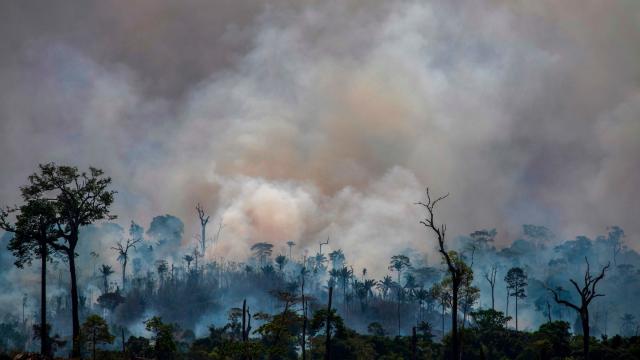The tropics are the most biodiverse part of the world. Some tropical rainforests are home to more species than entire continents, and tropical coral reefs are believed to have the highest biodiversity of any marine ecosystem on the planet. But thanks to human action”specifically, the actions of the fossil fuel industry, Big Ag, and other planet-destroying corporations”those ecosystems are facing collapse.
Changes in climate, extreme weather, and other human activity such as land use practices, overfishing, and pollution are creating a “perfect storm” for tropical forests and coral reefs, according to a new study published in the Philosophical Transactions of the Royal Society B. The research points to the urgent need to change course or risk permanently altering the tropics
The researchers analysed the ecological effects of hurricanes, floods, heat waves, droughts, and wildfires on 100 different forest and coral reef locations throughout the tropics. Climate change has increased the likelihood of all of these extreme events (that includes marine heat waves, too).
The impacts of these extreme weather events are particularly deleterious in areas that are already threatened by other human activities. Water pollution and overfishing, for instance, threaten coral reefs, and logging and agriculture threaten forests. Add in a climate shock or two and you have a recipe for disaster. Some regions, such as the Caribbean islands, have already seen wildlife populations reduced by more than half.
“Many local threats to tropical forests and coral reefs… reduce the diversity and functioning of these ecosystems,” lead researcher Filipe França said in a statement. “This in turn can make them less able to withstand or recover from extreme weather. Our research highlights the extent of the damage which is being done to ecosystems and wildlife in the tropics by these interacting threats.”
Ecosystems are built to handle some extreme weather having evolved with it for eons, but the rapid changes in climate being driven by human activities can make them far less resilient. Rising temperatures and more frequent and intense droughts, for instance, make tropical forests more susceptible to destruction by wildfires. In the oceans, heat waves have weakened many reefs through coral bleaching and increase the odds of more destruction when the next heat wave hits.
And in some cases, the study shows that biodiversity loss begets more biodiversity loss. For instance, because dung beetles play a vital role in forest recovery by spreading seeds, losing dung beetles can vastly reduce forests’ abilities to regrow.
Protecting the Earth’s biodiversity isn’t just altruistic (though it is that). Just like all other species, humans need diverse ecosystems to survive. Forests and coral reefs help regulate carbon in the atmosphere, and healthy ecosystems make sure we have clean air and water and healthy soil.
The scientists call for local action to protect and restore ecosystems, but on its own, that won’t be enough. The world will also have to tackle the climate crisis. That means we have to stop emitting greenhouse gases, fast.
